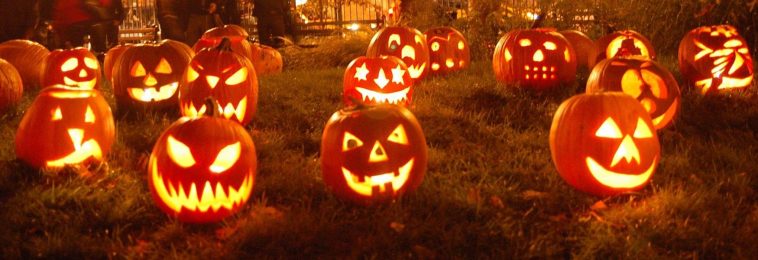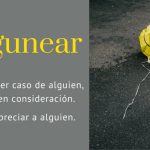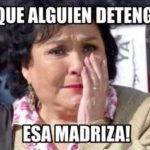Halloween, or La Noche de Brujas in Spanish, is not originally from Latin America, but it’s now celebrated in many Spanish-speaking countries. Children dress up (se disfrazan), go from door to door asking for candy, and people decorate their homes with pumpkins and skeletons.
In this post, you’ll find a big list of Halloween-related words in Spanish and English. Some are funny, others dark or poetic — like tinieblas (darkness) or ultratumba (afterlife). Learning them will not only help your vocabulary but also show you how Spanish can sound beautiful and scary at the same time.
🕸️ Halloween Vocabulary in English and Spanish
| English | Spanish | Notes / Explanation |
|---|---|---|
| Halloween | Noche de Brujas | Literally “Night of Witches” |
| Pumpkin | Calabaza | Used for decorations and pan de calabaza |
| Jack-o’-lantern | Lámpara de calabaza | Carved pumpkin with a candle |
| Ghost | Fantasma | Common word in both genders (el / la fantasma) |
| Skeleton | Esqueleto | Halloween classic |
| Witch | Bruja | Sometimes funny, sometimes terrifying |
| Spell | Hechizo | A magical spell or charm |
| Magic | Magia | General word for magic |
| Wizard | Mago | Male version of bruja (sort of) |
| Monster | Monstruo | Very common in stories |
| Vampire | Vampiro | Like Drácula |
| Dracula | Drácula | Same in Spanish |
| Frankenstein | Frankenstein | Same spelling, masculine noun |
| Werewolf | Hombre lobo | Literally “wolf man” |
| Zombie | Zombi | Also spelled zombie |
| Mummy | Momia | Classic Halloween costume |
| Bat | Murciélago | A bit hard to pronounce! |
| Cat (black cat) | Gato negro | Associated with witches |
| Owl | Búho | A night bird in spooky stories |
| Spider | Araña | Small but scary |
| Web | Telaraña | Spiderweb |
| Scarecrow | Espantapájaros | Made of straw or hay |
| Darkness | Tinieblas | Poetic word for “darkness” |
| Fear | Miedo | The basic word for “fear” |
| Scary | Espantoso / de miedo | Can mean “frightening” or “terrifying” |
| Creepy | Escalofriante | Gives you chills |
| Graveyard | Cementerio / panteón | Both mean “cemetery” |
| Tomb | Tumba | Same root as ultratumba |
| Afterlife | Ultratumba | Literally “beyond the grave” |
| Trick or treat | Truco o trato | Literal translation used in Spain |
| Candy | Dulce | General term for sweets |
| Candies / Sweets | Caramelos | Very common word in Latin America |
| Costume | Disfraz | What you wear on Halloween |
| Parade | Desfile | Like Halloween parades in big cities |
| Mask | Máscara | For costumes or disguises |
| Blood | Sangre | Used in vampire stories |
| Skull | Calavera | Common in Día de Muertos |
| Bones | Huesos | Skeleton parts |
| Coffin | Ataúd | Where Dracula sleeps |
| Candle | Vela | Used to create spooky light |
| Evil | Malvado / mal | Used for villains |
| Nightmare | Pesadilla | Scary dream |
| Haunted house | Casa embrujada | Literally “bewitched house” |
| Spirit | Espíritu | Similar to “ghost” |
| Death | Muerte | A central idea in many traditions |
| Dead | Muerto / difunto | Used for Día de Muertos too |
| Grave | Sepultura | A formal word for “grave” |
| Moon | Luna | Full moon — luna llena |
| Midnight | Medianoche | The witching hour |
| Shadows | Sombras | Where scary things hide |
| Screams | Gritos | What people do when afraid |
| To scare | Asustar | Verb: “to scare” someone |
| To get scared | Asustarse | Reflexive form: “to get scared” |
| Horror | Horror | Same in both languages |
| Evil spirit | Espíritu maligno | Bad spirit |
| Magic potion | Poción mágica | Classic in witch stories |
| Lantern | Linterna | Small light or flashlight |
| Broom | Escoba | The witch’s vehicle |
| Devil | Diablo | Common in scary folklore |
| Angel | Ángel | Sometimes opposite of evil |
| Soul | Alma | Used in Día de Muertos and religion |
| Festival | Fiesta / celebración | Refers to Halloween events |
👻 A Few Cultural Notes
In Mexico, Halloween is celebrated on October 31, but it’s immediately followed by Día de Muertos (Day of the Dead), November 1 and 2 — a beautiful tradition that mixes pre-Hispanic and Catholic beliefs. While Halloween is more about fear, Día de Muertos celebrates love, memory, and family.
Many Spanish words for Halloween overlap with Día de Muertos vocabulary — like calavera, vela, tumba, alma, and espíritu — but the tone is different: less horror, more affection. That’s another post.




